This article was co-authored by Chad Herst, CPCC. Chad Herst is the Executive Coach at Herst Wellness, a San Francisco-based wellness center focused on Mind/Body Coaching. Chad is an accredited Co-Active Professional Coach (CPCC) and he has been working in the wellness space for over 19 years, with experience as a yoga teacher, acupuncturist, and herbalist. He received his BA from Columbia University and his MS in Traditional Chinese Medicine from the Pacific College of Oriental Medicine.
There are 9 references cited in this article, which can be found at the bottom of the page.
This article has been viewed 27,839 times.
When you have anxiety, you may face a number of challenges like anxiety-related procrastination. Luckily, you don’t need to feel stuck with how you're feeling. By doing things like breaking down your responsibilities and taking a break, you can beat your anxiety-related procrastination!
Steps
Overcoming Cognitive Hurdles
-
1Be aware that anxiety-related procrastination is a specific type. Procrastination is quite common, and there are several different types of procrastination. If you become anxious due to worrying about failing, making the wrong choice, or for other reasons, then you are probably a “worrier procrastinator.” This type of procrastination is often characterized by:
- Being indecisive.
- Lacking confidence.
- Relying heavily on other people.
- Being afraid to take risks.
-
2Improve your decision making skills. Having good decision making skills can help you to avoid procrastinating when you have a difficult problem to deal with. Some things you can do to improve your decision making skills include:
- Getting into the habit of describing your problem in detail.
- Listing all of your alternatives.
- Analyzing your options to help you choose the best one.
- Carrying out your plan and reflecting on the outcome.
Advertisement -
3Become more self-efficacious. Being self-efficacious is when you feel confident in your ability to control your life and to get results when you set a goal. Developing this skill can help to make it easier for you to avoid procrastinating. Some ways to build your self-efficacy include:[1]
- Reflecting on all of the things you have already accomplished in your life, big and small. This can be as simple as speaking your first words as a baby to something more complex like writing a very long paper for an English class.
- Setting realistic goals for yourself. By setting goals that are within your reach, you will have a better chance of achieving them. For example, a realistic goal might be something like reading 10 pages in a textbook, applying to three jobs in a week, or writing the introduction paragraph to a paper.
- Finding a role model. If you know someone who always seems to accomplish their goals and get things done, then you might consider making this person your role model. Pay attention to their habits and see what you can learn from them.
-
4Head off fears that might lead to procrastination. Fears about failing can cause some people to procrastinate. By working on this fear, you may be able to reduce the urge to procrastinate.
- Try to start thinking like a scientist. Scientists learn by trial and error. If you can change your way of looking at tasks as opportunities to learn, then you might find it easier to get started in the first place.
- For example, if you find yourself feeling worried about failing, then you might try asking yourself, “What might I learn from this experience if I am willing to take a risk?” Or, you might ask yourself, “What things could I do to overcome a fear of failing?”[2]
Managing Your Responsibilities
-
1Break your tasks down. Taking large tasks and breaking them down into smaller, more manageable action steps can help you beat your anxiety related procrastination.[3] Breaking the task down can make the task seem less overwhelming, which can help you feel less anxious about getting it done.
- For instance, you can break a report for work down into researching it, writing it, and editing it.
- Or, you might break a school paper into the introduction, main points, and conclusion. Then work on completing one section rather than the whole thing.
-
2Set goals. It can be especially helpful to set goals when you have anxiety because your anxiety can make it difficult for you to focus on and complete activities. Some research suggests that doing things like setting goals and deadlines for your tasks can help you beat procrastination.[4] Setting goals gives you something concrete, self-defined, and manageable that you can do.
- Create specific goals with deadlines for the things you need to get done. For instance, you might say, “I will finish cleaning my room by 10 PM.”
- Make your goals realistic. For example instead of setting a goal to finish a 10-page report in one day, set a goal to finish the first two pages in one day. Setting goals that are too difficult can actually increase your anxiety rather than reduce it.
-
3Take a break. It may seem like a good idea to keep ‘plugging at it’ once you start working so that you don’t lose your steam and start procrastinating. But, taking a break to de-stress, relieve tension, and recharge your brain and body is a better way to address your anxiety and your anxiety related procrastination.[5]
- Take a five minute break when you complete one of the action steps for your task.
- Sit in a quiet place, close your eyes, and just take a few minutes to be still and quiet.
-
4Reward yourself. When you complete a task or reach one of the goals that you have set for yourself, you should congratulate and encourage yourself with a small reward. Incentives can help motivate you as well as give you incentive to meet other goals.
- For instance, when you complete one of your action tasks, you might treat yourself to a piece of candy or a 5-minute break to play one of your favorite online games.
- Or, for example, you might treat yourself to the new shoes you’ve been eyeing when you finish a major report on time.
-
5Forgive yourself. It can be easy to beat yourself up when you procrastinate on doing something. Some evidence suggests, though, that doing this may make it more likely that you will procrastinate again.[6] Instead, give yourself a break and forgive yourself if you procrastinate because of your anxiety.
- Remind yourself that procrastinating doesn’t make you a lazy or bad person. You might say, “I procrastinated on this, but it doesn’t mean I’m not a hard worker.”
- Reduce some of the pressure on yourself by saying things like, “I didn’t start on time for this assignment, but I’m not going to beat myself up. I can and will do better next time.”
Coping with Your Anxiety
-
1Seek treatment from a professional. If you aren’t currently seeking help for your anxiety, then you should do so. While you can manage anxiety and your anxiety related procrastination on your own, medical and mental health professionals can provide you with effective treatment, support, and information.[7]
- You can check with your school counselor or the human resources representative at your job for references for professionals.
- Talk to your physician about your feelings of anxiety. For example, you could try saying, “Could I schedule an appointment to talk about some anxiety I’ve been having?”
- If you are currently receiving treatment, talk to your service provider about techniques you can use to overcome your procrastination. You might ask your therapist, “Are there strategies I can use when my anxiety is causing me to procrastinate?”
-
2Develop coping strategies. You will be able to handle your anxiety and your anxiety related procrastination if you use strategies to reduce your stress and calm you. There is a respectable amount of research that suggests that using coping techniques like mindfulness meditation and deep breathing can reduce anxiety.[8]
- Practice taking slow, deep breaths. Inhale slowly and deeply. Hold the breath for a beat or two. Slowly and deeply exhale. Repeat these steps as many times as needed to reduce your anxiety.
- Try mindfulness techniques to center yourself and calm down when you feel your anxiety building. Being mindful, or aware of yourself, can help you cope with the physical and emotional symptoms of your anxiety.
- Practice doing stretches and other physical activities like yoga to help reduce some of the anxiety you feel.
-
3Build a support system. One of the best things you can do to cope with your anxiety is to let your friends and family support you.[9] People that care about you can provide support, encouragement, or just a listening ear to help you beat your anxiety related procrastination.
- Tell the people close to you that you’re struggling with anxiety related procrastination and need their support. You might say something like, “Mom, I’m having trouble finishing my work. I get anxious about it and then put off doing it until the last minute.”
- Check https://www.adaa.org/supportgroups to find support groups and online groups you can join.
Balancing Your Life
-
1Prioritize your activities. Having too much on your plate and not enough time to do it can stress anyone. It can be even more stressful when you have anxiety and have to overcome anxiety related procrastination. Prioritizing your activities and tasks will help you keep perspective on what needs to be done and help you feel less overwhelmed.[10]
- Make a list of all the things you need to get done. Highlight, circle, or put a star beside those things that are time-sensitive or will have serious negative consequences if they aren’t completed.
- Make an effort to complete your important/ high priority tasks first.
-
2Make time for you. With so many things that you need to get done and so many responsibilities and obligations that you are trying to meet, you may not make much time to do things that you enjoy. You can tackle anxiety and beat anxiety related procrastination if you make sure that you are carving some time out to do something fun or relaxing for yourself.
- Spend at least a few hours each week doing something like writing, reading, biking, sleeping, or binge watching webisodes.
- Take a few minutes each evening to do something that you want to do – not that you need to do.
-
3Nurture your body. Procrastinating can cause you to have to rush to complete tasks and activities. In your rush, you may be sacrificing your health by skipping meals, pulling ‘all-nighters’, and doing other things to try to make more time to finish your tasks.
- Make sure you are getting 6 – 8 hours of sleep each night.
- Eat balanced meals and nutritious snacks so you have the energy to complete your tasks and activities.
- Stop smoking. Research suggests that quitting smoking can help you improve your physical health, as well as reduce your anxiety.[11]
- Avoid alcohol and substance abuse. Mixing either of these with your anxiety can create more problems for you.[12]
Expert Q&A
-
QuestionWhat is the first step to change?
 Chad Herst, CPCCChad Herst is the Executive Coach at Herst Wellness, a San Francisco-based wellness center focused on Mind/Body Coaching. Chad is an accredited Co-Active Professional Coach (CPCC) and he has been working in the wellness space for over 19 years, with experience as a yoga teacher, acupuncturist, and herbalist. He received his BA from Columbia University and his MS in Traditional Chinese Medicine from the Pacific College of Oriental Medicine.
Chad Herst, CPCCChad Herst is the Executive Coach at Herst Wellness, a San Francisco-based wellness center focused on Mind/Body Coaching. Chad is an accredited Co-Active Professional Coach (CPCC) and he has been working in the wellness space for over 19 years, with experience as a yoga teacher, acupuncturist, and herbalist. He received his BA from Columbia University and his MS in Traditional Chinese Medicine from the Pacific College of Oriental Medicine.
Mindfulness Coach Embrace changes as new and exciting opportunities. One of the main causes of procrastination is a fear of change. While it's understandable to not want to mess with comfortable routines, change is often a good thing because it can lead you in new directions.
Embrace changes as new and exciting opportunities. One of the main causes of procrastination is a fear of change. While it's understandable to not want to mess with comfortable routines, change is often a good thing because it can lead you in new directions.
References
- ↑ http://serc.carleton.edu/NAGTWorkshops/affective/efficacy.html
- ↑ https://www.psychologytoday.com/blog/science-and-sensibility/201403/how-overcome-fear-failure
- ↑ https://www.psychologicalscience.org/publications/observer/2013/april-13/why-wait-the-science-behind-procrastination.html
- ↑ https://www.psychologicalscience.org/publications/observer/2013/april-13/why-wait-the-science-behind-procrastination.html
- ↑ https://www.ucl.ac.uk/students/news/2020/feb/5-benefits-taking-breaks
- ↑ https://www.psychologicalscience.org/publications/observer/2013/april-13/why-wait-the-science-behind-procrastination.html
- ↑ https://www.nimh.nih.gov/health/topics/anxiety-disorders/index.shtml
- ↑ http://www.anxietyandstress.com/#!managing-panic-attacks/c1ohi
- ↑ https://www.nimh.nih.gov/health/topics/anxiety-disorders/index.shtml
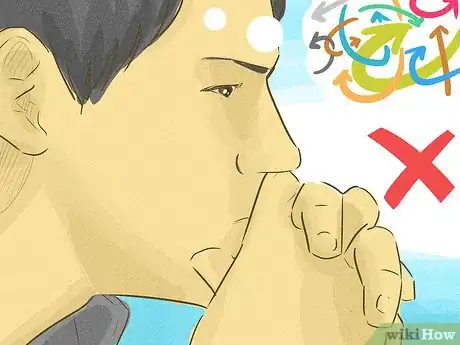
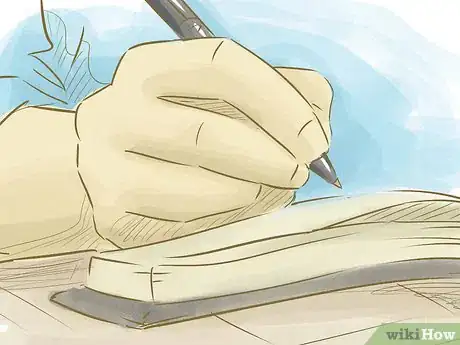
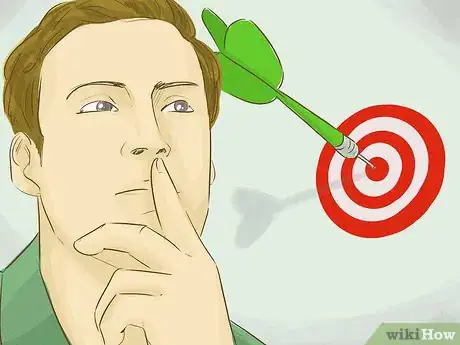
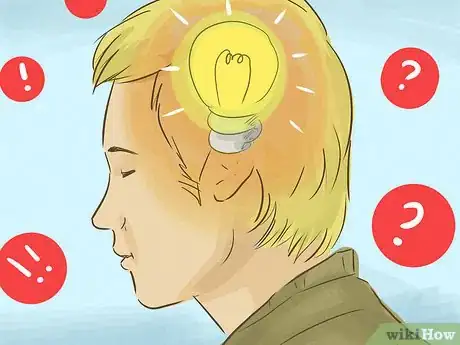







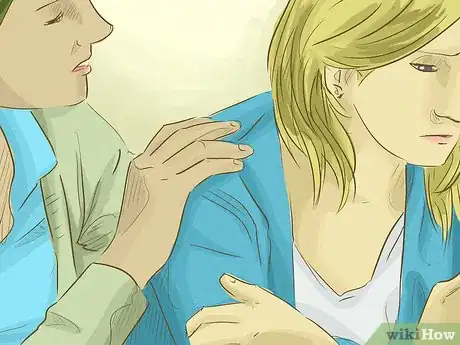
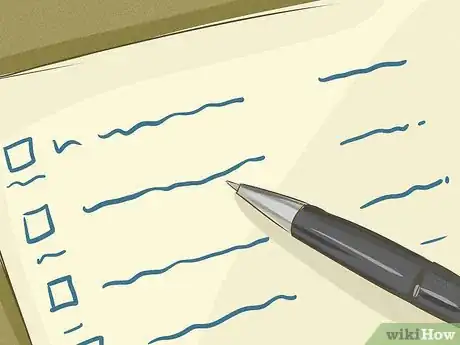

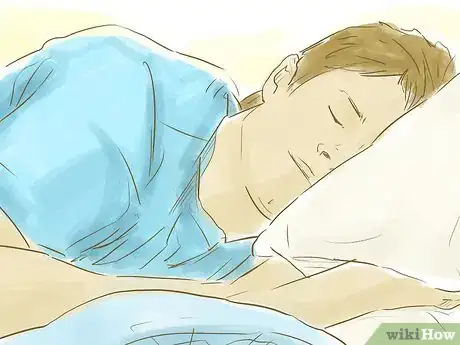




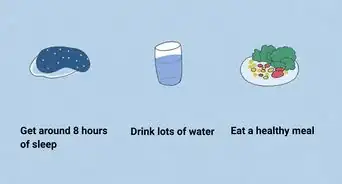
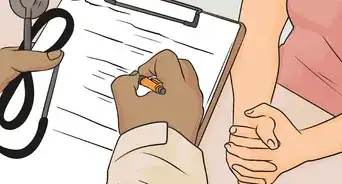






















































Medical Disclaimer
The content of this article is not intended to be a substitute for professional medical advice, examination, diagnosis, or treatment. You should always contact your doctor or other qualified healthcare professional before starting, changing, or stopping any kind of health treatment.
Read More...